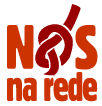acolhimento ao sagrado

Blogagem coletiva - Dia de Luta pela Descriminalização do Aborto na América Latina e Caribe - 28/09/2005. Os blogueiros do grupo blogleft estarão puxando mais um movimento Nós na Rede.
Escrevo este post porque admiro esta proposta de reflexão massiva utilizando Blogs, e acredito que é a rede é um espaço fundamental de expressão civil.
Sou favorável à descriminalização do aborto. Sou favorável também à educação para a responsabilidade, o que implica num investimento sério em conscientizar homens e mulheres a utilizarem métodos anti-concepcionais preventivos, que evitem a gravidez não planejada. Sou favorável à vida em condições materiais, psíquicas e afetivas que tornem possível o desenvolvimento de uma existência saudável e feliz. Não há dúvidas que estes limites são muito difíceis de definir. Mas entendo que homens e mulheres deveriam poder optar por interromper no início uma gravidez, se tiverem claro que estas condições não estão dadas. O sagrado a ser garantido na vida é o acolhimento que deve se dar a ela.



